
https://tianweigong.github.io/
We examine how people figure out what happened by combining visual and auditory evidence through mental simulation.
Paper: osf.io/preprints/ps...
Code: github.com/cicl-stanfor...

We examine how people figure out what happened by combining visual and auditory evidence through mental simulation.
Paper: osf.io/preprints/ps...
Code: github.com/cicl-stanfor...
📃 authors.elsevier.com/a/1lo8f2Hx2-...
📃 authors.elsevier.com/a/1lo8f2Hx2-...

LLMs are increasingly involved in human collaborations. How do LLMs assign responsibility and reward to collaborators? Is it similar to how humans do it? 🤖🧑
📃 gershmanlab.com/pubs/XiangBi... (1/4)
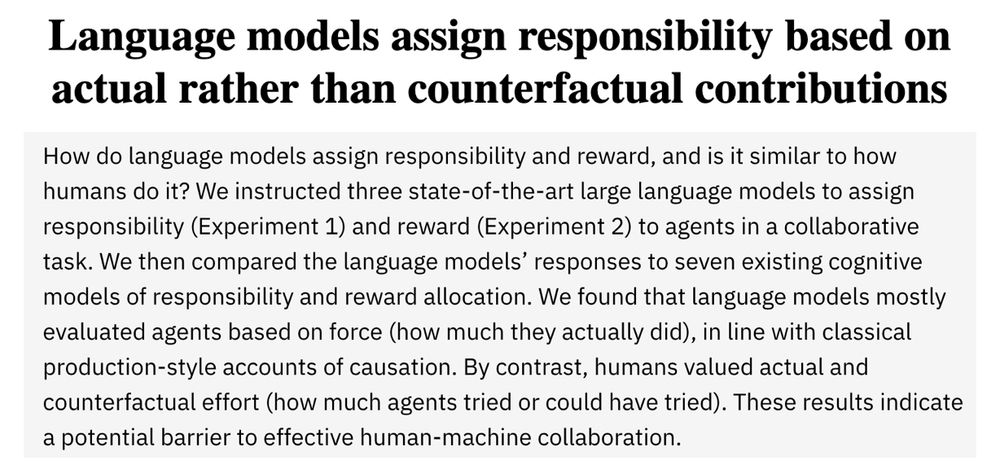
LLMs are increasingly involved in human collaborations. How do LLMs assign responsibility and reward to collaborators? Is it similar to how humans do it? 🤖🧑
📃 gershmanlab.com/pubs/XiangBi... (1/4)
Lossy encoding of distributions in judgment under uncertainty
By @tadegquillien.bsky.social , me & Chris Lucas
www.sciencedirect.com/science/arti...
We find people's 'best guesses' sneakily encode distribution information that guesser & others can reconstruct later
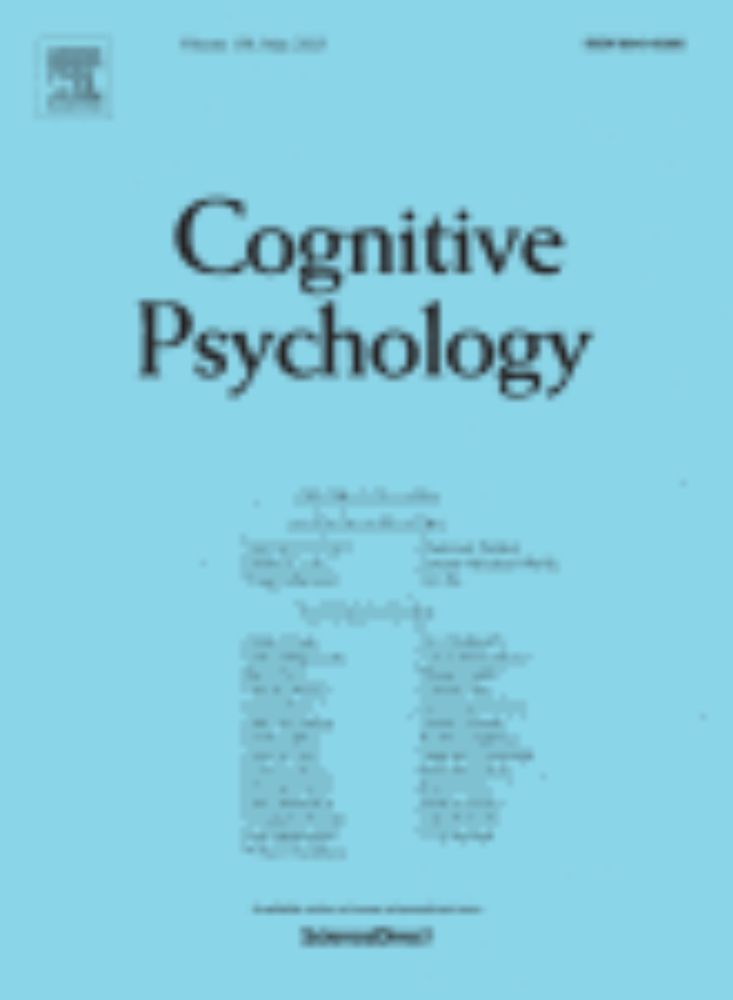
Lossy encoding of distributions in judgment under uncertainty
By @tadegquillien.bsky.social , me & Chris Lucas
www.sciencedirect.com/science/arti...
We find people's 'best guesses' sneakily encode distribution information that guesser & others can reconstruct later
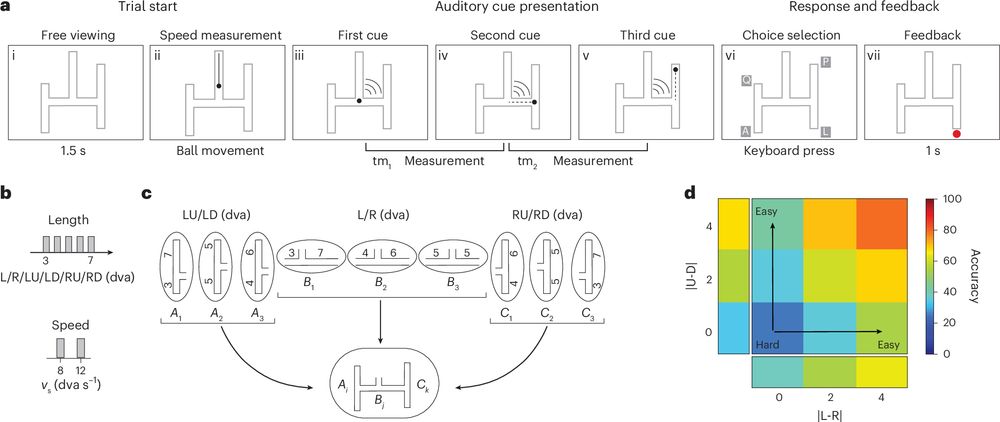
www.nature.com/articles/s41...

www.nature.com/articles/s41...
"Physics vs. graphics as an organizing dichotomy in cognition"
(by Balaban & me)
relevant for many people, related to imagination, intuitive physics, mental simulation, aphantasia, and more
authors.elsevier.com/a/1lBaC4sIRv...
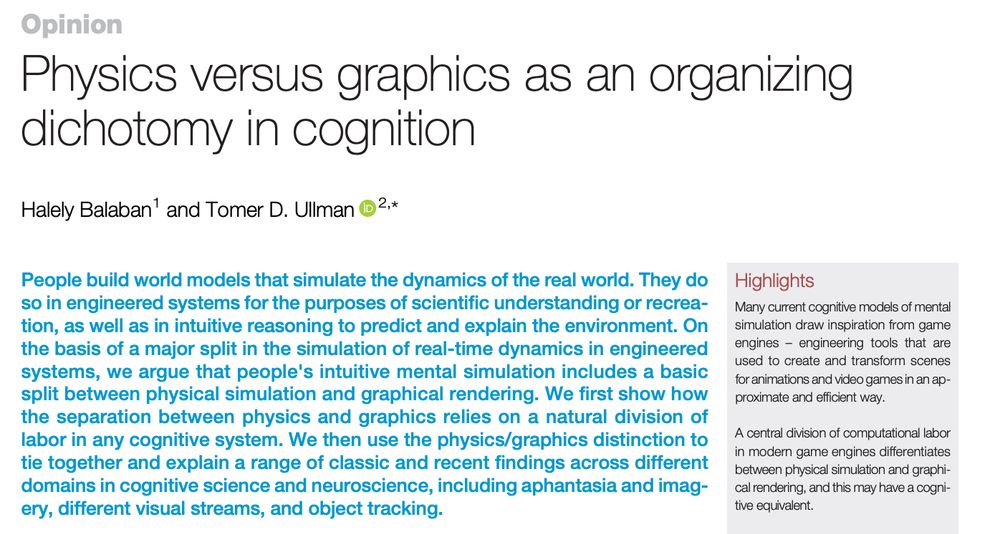
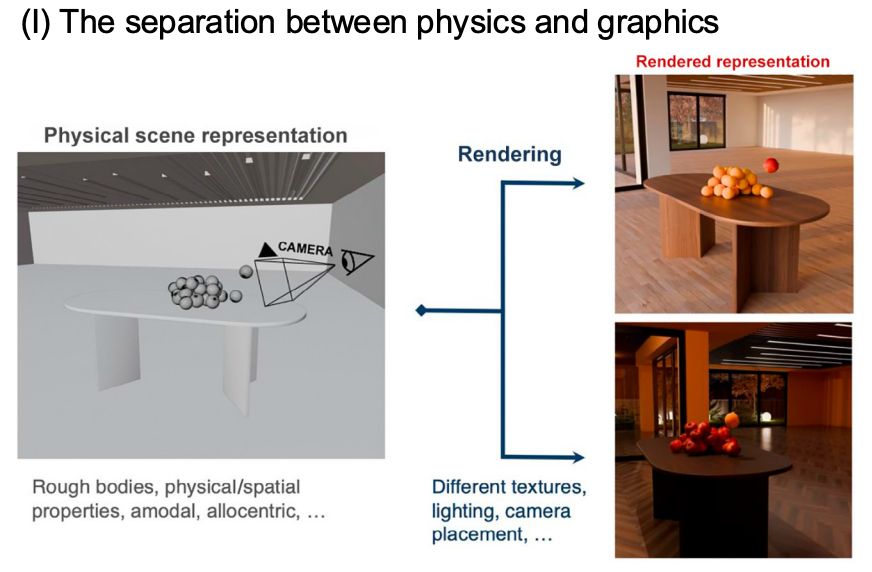
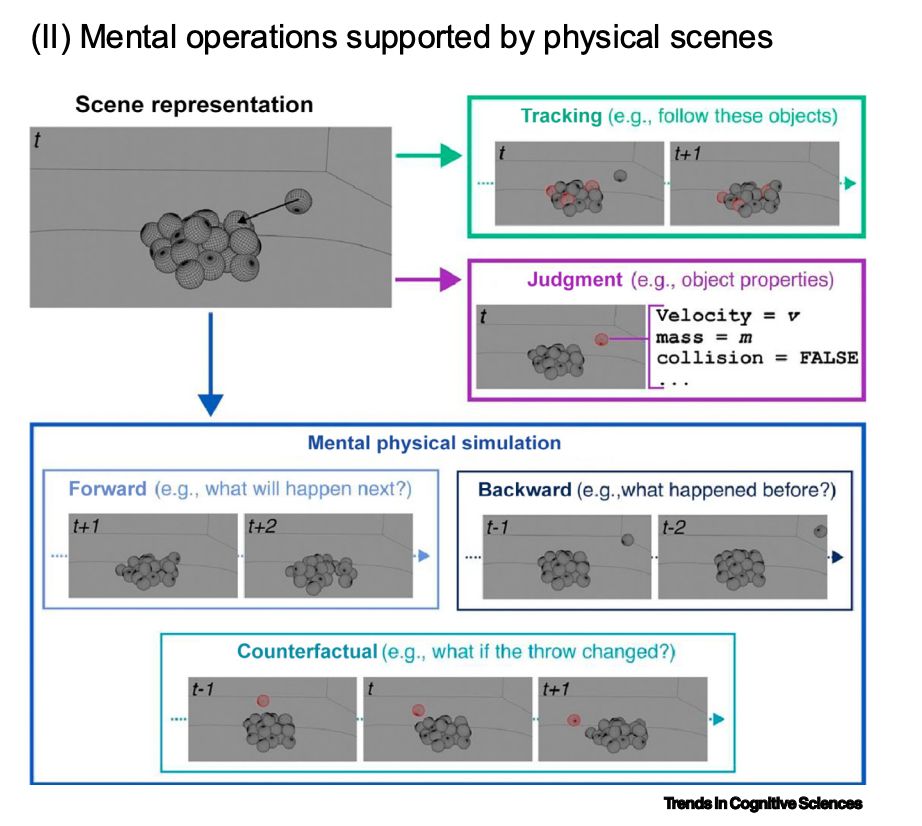
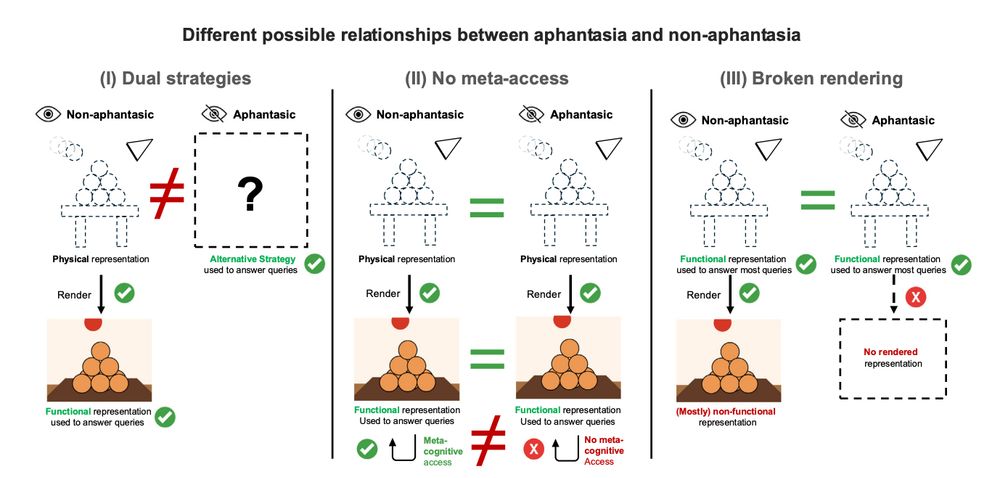
"Physics vs. graphics as an organizing dichotomy in cognition"
(by Balaban & me)
relevant for many people, related to imagination, intuitive physics, mental simulation, aphantasia, and more
authors.elsevier.com/a/1lBaC4sIRv...
Today we are launching our new Thematic Collections to organize our growing set of articles!
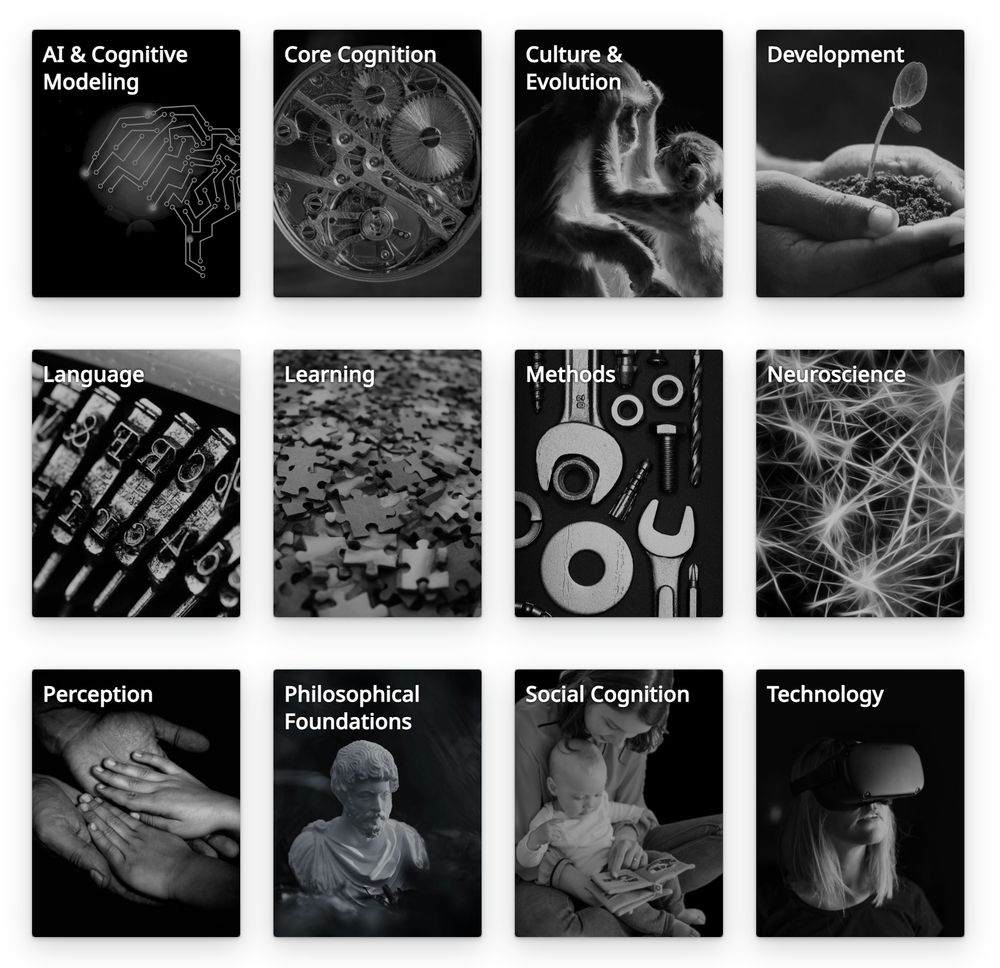
Today we are launching our new Thematic Collections to organize our growing set of articles!
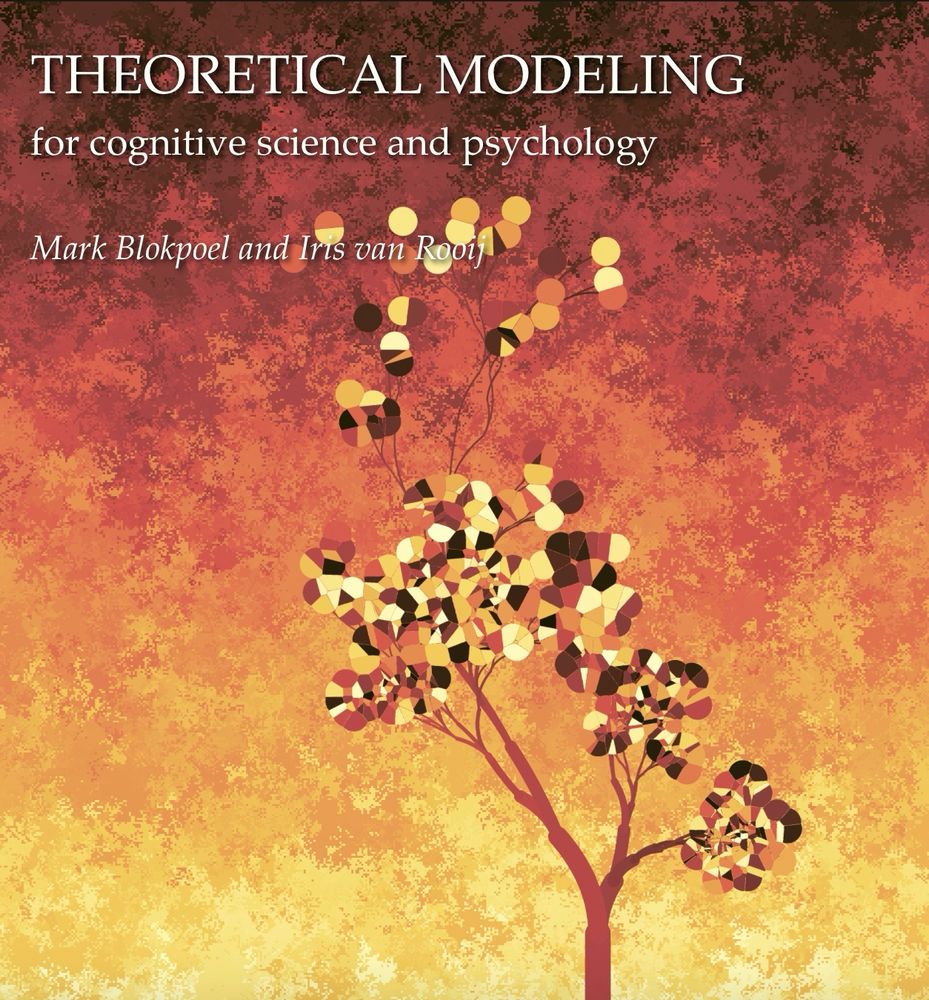
How do humans flexibly adapt their individual and social learning strategies in dynamic, realistic situations? Check it out 👉 www.nature.com/articles/s41... 🧵👇
How do humans flexibly adapt their individual and social learning strategies in dynamic, realistic situations? Check it out 👉 www.nature.com/articles/s41... 🧵👇
In "Taking others for granted: Balancing presentational and personal goals in action selection" we propose a computational model explaining why people favour self interested behaviour when they believe others to trust them.
📃 osf.io/preprints/ps...
📎 github.com/Vbtesh/takin...
In "Taking others for granted: Balancing presentational and personal goals in action selection" we propose a computational model explaining why people favour self interested behaviour when they believe others to trust them.
📃 osf.io/preprints/ps...
📎 github.com/Vbtesh/takin...
gershmanlab.com/pubs/Gershma...
gershmanlab.com/pubs/Gershma...
https://www.nature.c...

https://www.nature.c...
Out in Child Development:
"Learning Loopholes: The Development of Intentional
Misunderstandings in Children"
paper: srcd.onlinelibrary.wiley.com/doi/10.1111/...
preprint-pdf: www.tomerullman.org/papers/kids_...




Out in Child Development:
"Learning Loopholes: The Development of Intentional
Misunderstandings in Children"
paper: srcd.onlinelibrary.wiley.com/doi/10.1111/...
preprint-pdf: www.tomerullman.org/papers/kids_...


